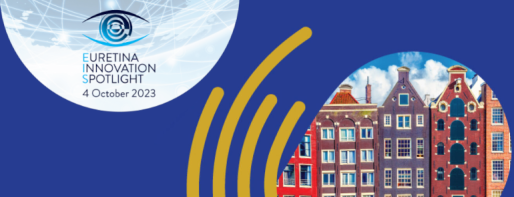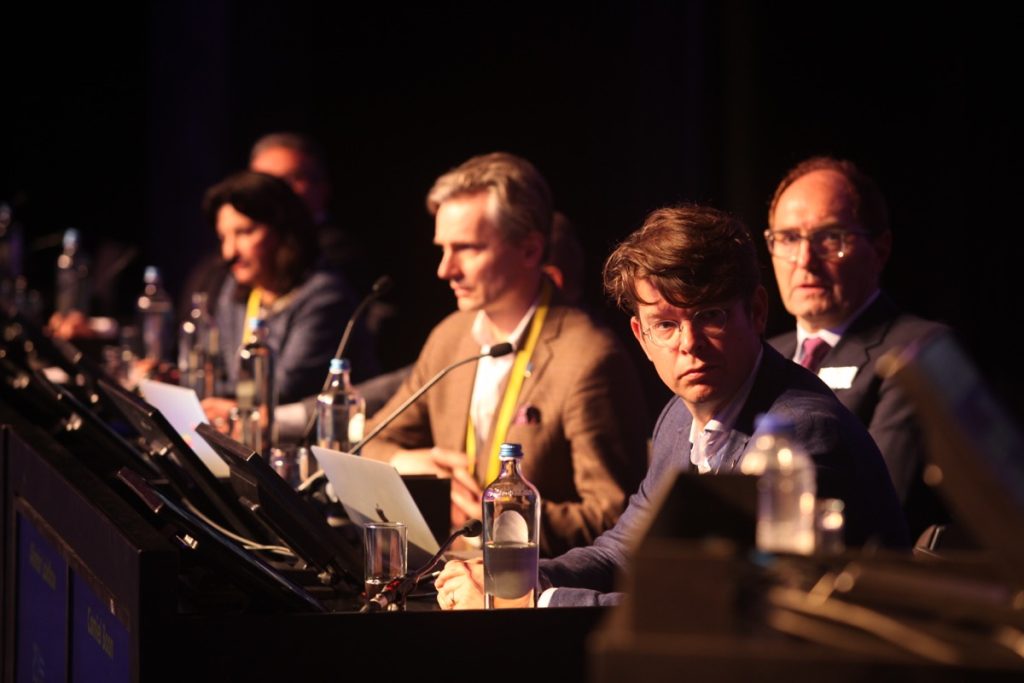Presentations by Ukrainian retina specialists speaking at the Ukraine Support Symposium on Friday afternoon described the devastating eye injuries suffered by Ukrainian soldiers and civilians in the ongoing war with Russia and described the complex surgical approaches needed to manage these traumatic cases.
Opening the session, Dr Camiel Boon (Netherlands) observed that while retina specialists attending the Euretina Congress are gathering in beautiful, peaceful Amsterdam, at the same time and on the same continent, brave men and women are fighting for their freedom and for their lives in trenches in Ukraine.
“Here at this Euretina Ukraine Support Symposium we aim to put a spotlight on the brave people of Ukraine and especially our expert colleagues who are confronted with severe ocular trauma patients on a daily basis.”
The speakers included Dr Nadiia Ulianova who focused on surgical management and outcomes of cases that presented with no light perception vision. Dr Ihor Novitskyi reviewed cases that presented to the Lviv Military Hospital and pointed out that surgeons treating these patients must have the skills to perform simultaneous surgery of the anterior and posterior segment of the eye.
Both Dr Novitskyi and Dr Oksana Sidak-Petretska emphasised the challenges of surgery in eyes with corneal opacity and the need to use a temporary keratoprosthesis to achieve visualisation. Dr Bohdan Zhupan noted that in addition to the technical challenges surgeons face, their work is hampered by a lack of necessary tools because Russian invaders have also cut off supply chains.
Although the speakers showed how it was possible to restore visual function in some cases despite the severity of injuries suffered, in the final presentation of the session, Dr Lyubomyr Lytvynchuk, a Ukrainian ophthalmologist who works at the University Eye Clinic in Giessen, Germany, underlined that a high percentage of eyes end up permanently blind. He also said it is important not to overlook the psychological toll associated with these injuries.
Dr Lytvynchuk described the organisation and coordination of support efforts coming to Ukrainian ophthalmologists from their colleagues abroad, including his work with the Ukrainian Vitreoretinal Society and groups in Germany. Dr Lytvynchuk thanked Euretina for its quick response in helping to supply goods and medical supplies to Ukrainian doctors, noting that ESCRS has also been active with supply donations, and he thanked the world community of ophthalmologists for their support. He described additional needs and future projects, of which establishing a cornea bank has priority.
In closing the symposium, Dr Alistair Laidlaw (United Kingdom) characterised it as a sobering session.
“The horror on you is awful,” Dr Laidlaw said to the Ukrainian physicians. You have our sympathy and our support.”


